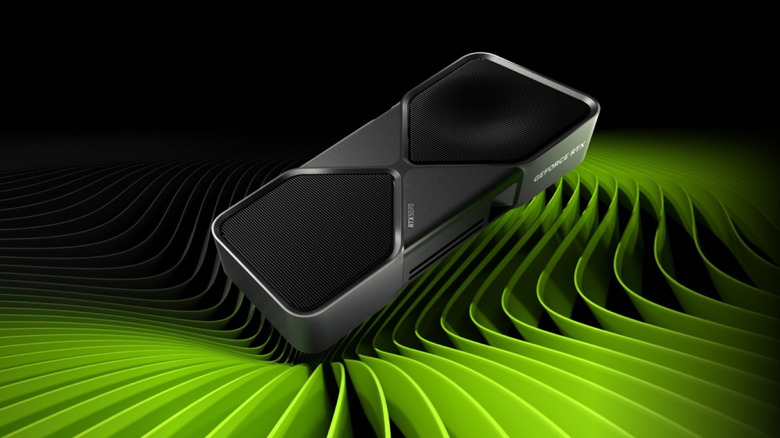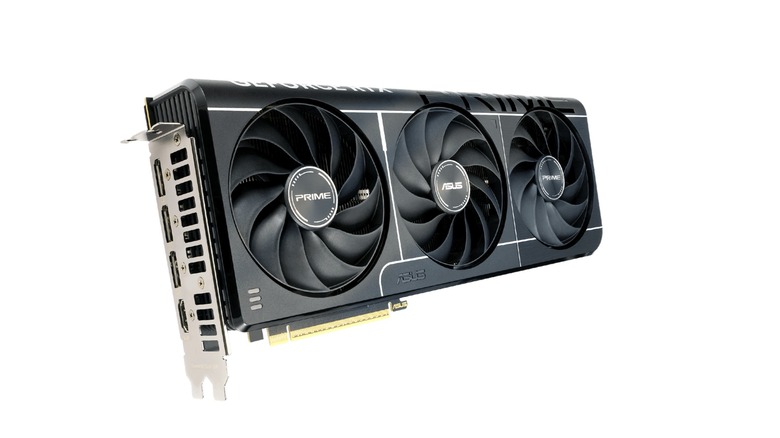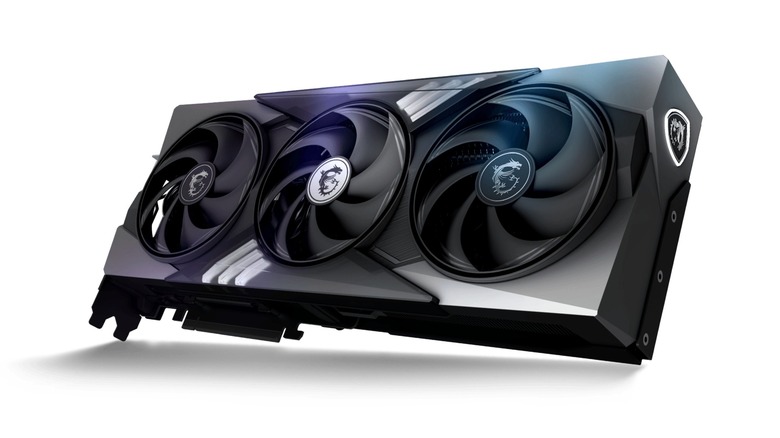NVIDIA GeForce RTX 5070 Vs. 4070: How Do The GPUs Compare?
After the smashing success of NVIDIA's GeForce RTX 4000 series GPUs, gamers across the world waited with bated breath for the follow-up. It arrived at the start of 2025, with the graphics card manufacturer debuting the RTX 5000 series during the Consumer Electronics Show in Las Vegas. One of the biggest shocks was the RTX 5070 GPU, which CEO Jensen Huang boldly claimed would offer "4090 performance at $549," a fraction of the cost of the previous generation's highly venerated top-tier 4090 card, which is great for gaming. Suffice to say, that was not entirely the case, and it seems as if NVIDIA was relying heavily on the 5070's AI frame generation to make those claims.
So, it's not as good as a 4090, but is the 5070 at least better than the 4070 it's replacing? The short answer is yes. The long answer is also yes, but only barely. To save you some time: no, you probably shouldn't upgrade to the 5070 if you've currently got a 4070 seated in your PC, as you won't see any serious performance gains. But if you've got a 4060, or something older like a 3070, an upgrade is worth considering, especially if you can find a 5070 close to MSRP. Depending on the games you play, you may also benefit from the latest AI upscaling and frame generation technologies that come with the 5070. So, let's break it all down.
The 5070 is barely faster than the 4070
The top-line concern when buying a gaming-class graphics card is frame rate, and the headline here is that the NVIDIA GeForce RTX 5070 beats out the previous 4070 and even the slightly beefier 4070 Super in multiple raw performance tests without AI upscaling or frame generation. But in tests from TechPowerUp and Rock Paper Shotgun, it barely edges out those last-generation cards, and even loses to the 4070 Ti in multiple games. It can run games at 4K, but in Ars Technica's testing, it never managed to hit 30 FPS in "Cyberpunk 2077" without DLSS and other assistive technologies. With the game's ray tracing in overdrive mode, the 5070 only coughed up 4.5 FPS without help, while the 4070 managed almost double the frame rate at 8.5 FPS. Only when DLSS was engaged did the 5070 finally overcome the card it's replacing with 46 FPS against the 4070's 37 FPS. In other words, you can game at 4K with the 5070, but you'd be better off at 1440p, or better yet, 1080p.
This all gets even bleaker when you compare specs. On paper, the 5070 seems like it should muscle out the 4070. Although video memory is 12GB on both cards, the 5070 jumps from GDDR6X to GDDR7 VRAM, which should afford a significant bandwidth increase. It also has more CUDA cores than the base 4070 (6,144 versus 5,888), a higher clock speed (2.33 gigahertz versus 1.92), and even draws more power (250 watts versus 200). However, things do get a lot better when NVIDIA's AI upscaling and frame generation technologies are turned on. Unfortunately, the GPU giant leaned hard on those artificial boosts for this generation of graphics cards.
The 5070 is only an upgrade from older GPUs
There are a few more differences that spec sheet sleuths will care about when comparing the NVIDIA GeForce RTX 4070 and 5070 GPUs, but none that we have time to go into here, and none that would strongly affect most people's purchasing decision. The bottom line is that, although the 5070 is still a great graphics card, it fails to improve much over its predecessor.
If you have an NVIDIA GeForce RTX 4070 seated in your gaming PC, there is no reason to upgrade to the 5070, and even less so if you have a 4070 Super. It's almost as if NVIDIA made the same card twice, and even if you got a 5070 for free, you'd be better off selling it on the overpriced secondhand market and using the profit to add more RAM to your system or upgrade your monitor. The real upgrade is the 5070 Ti, which does outperform the 4070 by a decent margin in the tests mentioned above that include it. It's still not compelling as a full-price upgrade, but you'd at least notice the difference in-game.
However, if you're still using an older 2070 or even 3070 series GPU, or if you're building your first gaming PC, the 5070 will feel like a significant upgrade. While it doesn't constitute the kind of generational uplift many hoped for, it's a great entry point to high-end PC gaming that can achieve decent frame rates at 1080p and even 1440p in AAA games. Moreover, at $549 MSRP, the value proposition is one pro of upgrading to the 50 series. That price goes a long way to alleviate performance frustrations.


